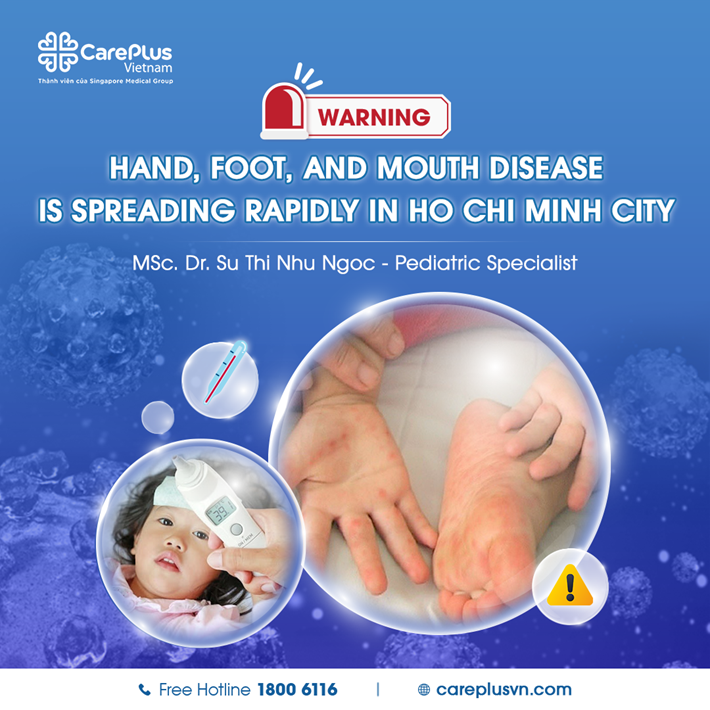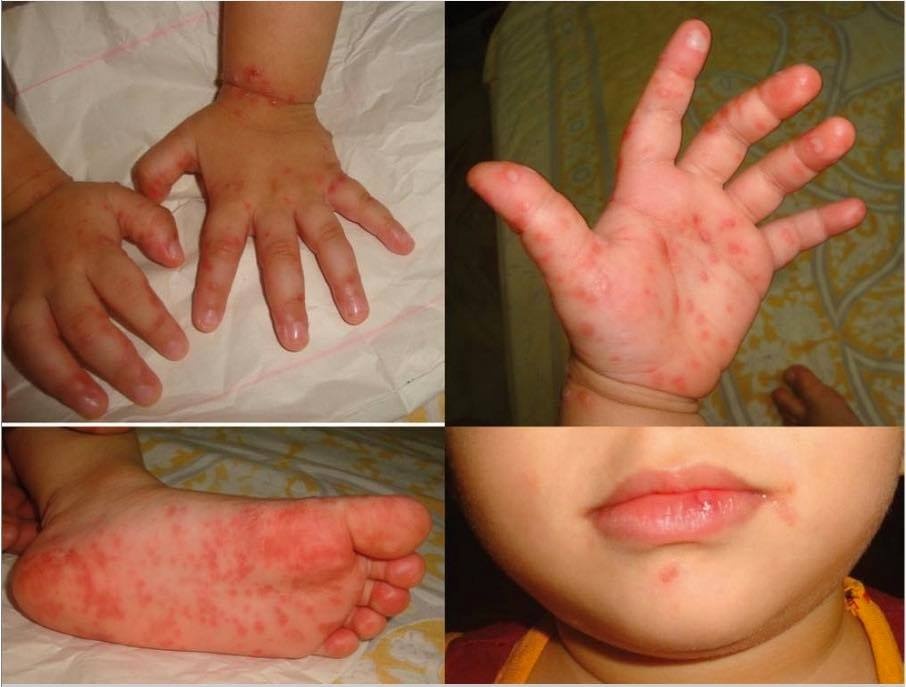WARNING: HAND, FOOT, AND MOUTH DISEASE IS SPREADING RAPIDLY IN HO CHI MINH CITY
Regarding the overall situation in 20 southern provinces, according to the Pasteur Institute of Ho Chi Minh City, the total number of cases in the first 19 weeks of 2024 is 13,495, an increase of 33.1% compared to the same period in 2023 and a 55% increase compared to the average of the same period over the past five years. The number of cases in recent weeks in the region is also increasing compared to previous weeks, with one death reported.

6/6/2024 10:40:09 AM
As of noon on May 30, according to the Ho Chi Minh City Center for Disease Control (HCDC), from May 20 to May 26 (week 21), Ho Chi Minh City recorded 581 cases of hand, foot, and mouth disease, a 26% increase compared to the average of the previous four weeks.
In the first 20 weeks of 2024, Ho Chi Minh City had 4,471 cases of hand, foot, and mouth disease treated at medical facilities, a 33% increase compared to the same period in 2023 and equivalent to the average of the five years from 2018 to 2022. There were 40 severe cases (grade 2b or higher) and no deaths, and the surveillance system has not detected Enterovirus 71 – a virus that often causes large outbreaks with many severe cases and dangerous neurological, respiratory, and circulatory complications. However, parents still need to increase their knowledge, proactively prevent, detect early, and treat the disease in children.
This article is consulted by MSc. Dr. Su Thi Nhu Ngoc – Pediatrics Specialist - CarePlus Clinic System
Understanding Hand, Foot, and Mouth Disease
Hand, foot, and mouth disease (HFMD) is an acute viral infection in children caused by viruses belonging to the species A-human enteroviruses (HEVA), genus Enterovirus, family Picornaviridae. The most common causative agents are Coxsackievirus (CV) A10, A14, A16, and Enterovirus 71 (EV71). Most severe and fatal cases are due to EV71.
Anyone can contract the disease, but it is most common in children under 5 years old. The disease usually occurs in two seasons each year, from March to May and then from September to November.
Symptoms of hand, foot, and mouth disease typically include fatigue, possible fever, and the appearance of white, oval-shaped blisters ranging in size from 2-10 mm, predominantly on the buttocks, knees, palms, and soles of the feet. These blisters are usually painless and non-itchy. Blisters also appear in the mouth and, when ruptured, cause painful mouth ulcers, making children irritable and unwilling to eat.
Most cases will resolve on their own, but if caused by Enterovirus 71, some children may develop very dangerous complications such as encephalitis, myocarditis, and meningitis. If not treated promptly and correctly, these complications can result in death within a few hours.
Signs That Require Immediate Medical Attention
A child with hand, foot, and mouth disease should be taken to a specialized hospital immediately if they exhibit any of the following signs:
- High fever or fever lasting more than two days
- Frequent vomiting, refusal to eat
- Startling, panic, lethargy (child jerks, opens eyes, then falls asleep again)
- Difficulty sleeping or continuous crying
- Limb tremors, seizures
- Weakness or paralysis of hands or feet, unsteady walking
- Purple mottled skin, sweating, cold hands and feet

Preventing Hand, Foot, and Mouth Disease
Hand, foot, and mouth disease does not provide permanent immunity, meaning it can recur. Furthermore, due to the various causative agents, even after infection, it can reoccur. Currently, there is no vaccine for hand, foot, and mouth disease in Vietnam.
The virus mainly spreads through contact with nasal or throat secretions, saliva, blister fluid, or feces of an infected person. Therefore, to prevent hand, foot, and mouth disease, the Department of Health recommends that the public and community actively follow the "3 clean" principle: eat (drink) clean, live clean, and keep hands and toys clean. Specifically:
- Wash hands frequently with soap under running water several times a day (for both adults and children), especially before preparing food, before eating/feeding children, before holding children, after using the toilet, after changing diapers, and after cleaning children.
- Clean daily contact surfaces and tools for children such as toys, learning tools, doorknobs, stair handrails, tables/chairs, and floors with soap or common disinfectants.
- Maintain good hygiene practices and ensure the use of clean water in daily activities.
- Do not let children come into contact with sick or suspected sick individuals. If signs of illness are suspected, take the child to the nearest medical facility immediately.
Hand, foot, and mouth disease in children is dangerous due to the lack of a vaccine and can be fatal. Therefore, parents should protect their children and prevent the disease in any circumstance to avoid unfortunate consequences.